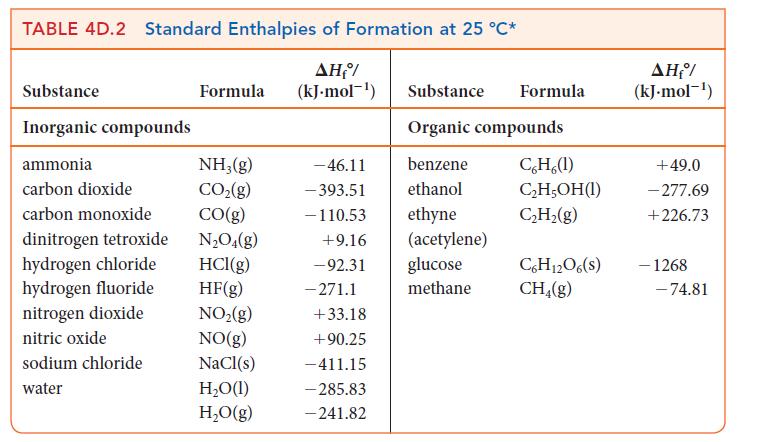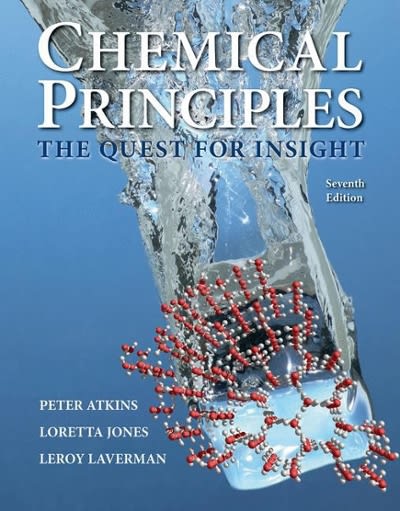The information in Table 4D.2 must be determined from experimental data, but because some reactions cannot be
Question:
The information in Table 4D.2 must be determined from experimental data, but because some reactions cannot be carried out directly, chemists who compile these types of tables commonly use enthalpies of combustion. Use the information in Table 4D.2 and the enthalpy of combustion of propane gas to calculate the enthalpy of formation of propane, a gas distributed as LPG (for propane, DHc° = –2220. kJ · mol–1).
ANTICIPATE The enthalpy of formation for methane in Table 4D.2 is 274.81 kJ · mol–1. Since propane contains more carbon and hydrogen atoms than methane, you should anticipate that the enthalpy of formation is more negative than –74.81 kJ · mol–1.
PLAN Use Eq. 2 and the procedure set out in Example 4D.5, but solve for the standard enthalpy of formation of propane.
Example 4D.5
Amino acids are the building blocks of proteins, which have long chainlike molecules. They are oxidized in the body to urea, carbon dioxide, and liquid water. Is this reaction a source of heat for the body? Predict the standard reaction enthalpy for the oxidation of the simplest amino acid, glycine (NH2CH2COOH), a solid, to solid urea (H2NCONH2), carbon dioxide gas, and liquid water:![]()
ANTICIPATE You should expect a strongly negative value, because all combustions are exothermic and this oxidation is like an incomplete combustion.
PLAN First, add together the standard enthalpies of formation of the products, multiplying each value by the appropriate number of moles from the balanced equation. Remember that the standard enthalpy of formation of an element in its most stable form is zero. Then, calculate the total standard enthalpy of formation of the reactants in the same way and use Eq. 2 to calculate the standard reaction enthalpy.

Step by Step Answer:

Chemical Principles The Quest For Insight
ISBN: 9781464183959
7th Edition
Authors: Peter Atkins, Loretta Jones, Leroy Laverman





